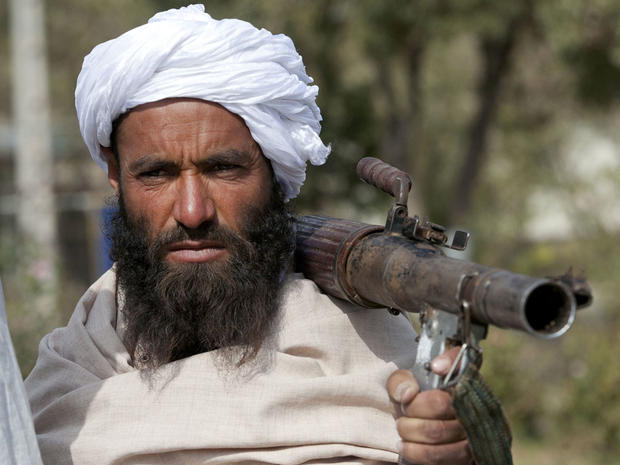Afghan peace payoffs fail to lure combatants
Not even the power of the purse seems to be strong enough to take down the Taliban.
While the U.S. government acknowledged during the weekend that it has begun preliminary peace talks with the group it's been targeting since 2001, The New York Times reported Monday that not many Taliban fighters have taken a flier on financial incentives to spur them to switch sides.
GOP Rep.: Keep politics out of Afghan decision
Video: Sec. Gates urges slow drawdown in Afghanistan
Karzai: Afghanistan, U.S. in talks with Taliban
The Times printed a page-one narrative focusing on one 28-year-old fighter who's one of the 1,700 to enroll in "the government's biggest and best financed peace program." (The Times estimates the total number of insurgents in Afghanistan at between 20,000 and 40,000.)
The fighter, Toor Jan, went over to the other side in February and brought 12 men with him for the promise of jobs, protection and the release of his brother from American detention, the Times reported. Each of his men receive $120 a month, and Jan receives $150, but he's not entirely happy with the 10-month-old program while he waits in a former Russian army base.
"The government cannot stand on its promises," he told the Times. "A good example is my defection: in the last five months I have received none of what they promised me: no salary, no good accommodations. Those who are fighting now say: 'Your men are jobless. What have you achieved?'"
Outgoing Defense Secretary Robert Gates addressed the peace talks with the Taliban after Afghan President Hamid Karzai said on Saturday that the United States and Afghanistan were engaged in them.
"My own view is that real reconciliation talks are not likely to be able to make any substantive headway until at least this winter," Gates told CNN's "State of the Union" in an interview taped Saturday. "I think that the Taliban have to feel themselves under military pressure, and begin to believe that they can't win before they're willing to have a serious conversation."
But the chances of successfully finding any pathway to peace with the Taliban are risky. CBS News chief foreign correspondent Lara Logan said on "The Early Show" Monday that there's no guarantee that the talks would bring the kind of desired resolution to the Afghan conflict.
"Secretary Gates was very, very, very hesitant to give any kind of great import to this because the truth is that no one knows that the U.S. is talking to the right people," Logan told "Early Show" co-anchor Erica Hill. "They went far in negotiations not so long ago, and the man they were negotiating with turned out to be a fraud and a joke, and everyone looked stupid after that. There's hesitation on the U.S. side and increasingly a desperate political push to be out of Afghanistan, and that's driving this more than any kind of reality on the ground."
Petraeus: Taliban impostor reports no surprise
Afghans blame British for Taliban imposter
But Logan said there was an upside for the Taliban engaging in the talks - one that could also undermine existing U.S. partnerships in the country.
"They win," said Logan. "They win the war as far as they're concerned because they've not been defeated by the U.S. ... What this says to the U.S.'s Afghan allies, 'If you resist us long enough and drag us down in a war that seems to be unwinnable to our people then we'll give in, and we will give you a seat at the table. You can return to power in your country,' and what it says to all the Afghans that fought with us is that, 'Well you struggled this last decade. Many of you don't even have jobs, can't feed your children, but that's just too bad because if you had resisted us, you'd now be getting a job, nice salary and your village would be getting development money.'"
Set against the backdrop of negotiations with the Taliban is President Barack Obama's July 31 deadline for beginning the withdrawal of U.S. troops from the country. The pace of the withdrawal has yet to be determined and differences have emerged within the administration and U.S. government at large - hardliners in the military favor a slower drawdown so as not to jeopardize gains won since Mr. Obama sent over 30,000 additional troops, but others argue the killing of Osama bin Laden and the disruption of al Qaeda removes the main rationale for maintaining a large troop presence in the region.
